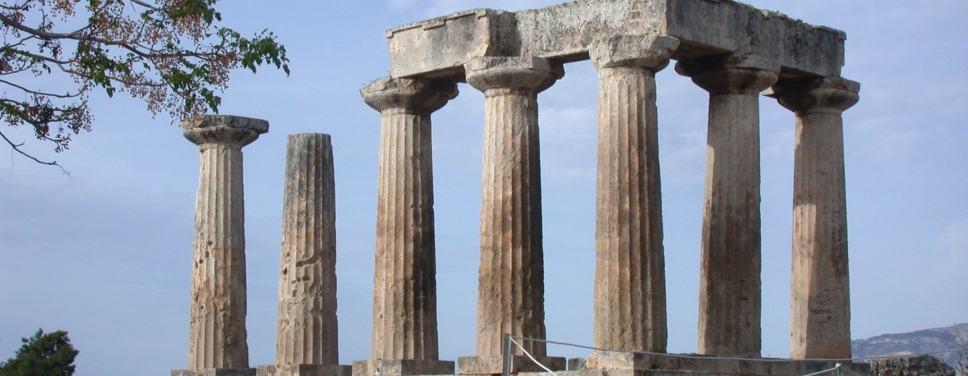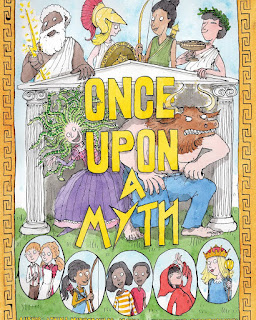by David Shaw
My forthcoming book, “An Ancient Greek Philosophy of Management Consulting: Thinking Differently about its Assumptions, Principles and Practice”, explores the work of ancient Greek Philosophers from the end of the 6th century BCE to the end of the 4th century BCE, in a search for new perspectives on the management consulting industry. The publisher, Springer International Publishing, has announced details of the book at the following link: https://www.springer.com/gb/book/9783030909581. In his Foreword to the book, Andrew Pettigrew - Emeritus Professor of Strategy and Organisation, Said Business School, University of Oxford – speaks of "its capacity to shape the theory and practice of management consulting and the development of the scholarly field of management itself".
Management consultants’ practice is influenced substantially by the assumptions and principles that they bring to their work. Very often, these assumptions and principles have been adopted unconsciously, and in consequence have eluded serious, critical examination. The rapid growth of the management consulting industry has brought substantial change over time, both in its scope and scale and in its fundamental characteristics, and may have outpaced the capacity of management scholars and management consultants themselves properly to scrutinise the assumptions and principles that now underpin the industry. Important philosophical issues underlie these assumptions and principles. The nature of the organisations in which management consultants seek to facilitate strategic change, and of the interventions that they make in them, are ontological questions. The ways in which management consultants ought to behave in order to perform their work in a morally acceptable way are ethical questions. The nature of management consultancy knowledge, and whether management consultants actually possess the kind of knowledge to which they lay claim, are epistemological questions.
The ancient Greek philosophers thought deeply about these kinds of questions, but they approached them from a very different intellectual tradition from our own, and they were responding to social and economic conditions that were wholly unlike ours. The distinct perspectives that are reflected in their work provide a rich resource for novel thinking about contemporary philosophical questions, including those arising in so modern an industry as management consulting. The speculations of Heraclitus, Parmenides, Leucippus and Democritus about the nature of the universe have the power to stimulate useful new perspectives on the nature of organisations and management consultancy interventions in them. Aristotle’s development of virtue ethics has a distinct contribution to make to assessments of what constitutes ethical practice in the professions and in business, including management consulting. Plato’s theory of knowledge and belief, and Aristotle’s distinction between wisdom (sophia) and prudence (phronesis), are invaluable in assessing the kind of knowledge that management consultants need, and are capable of possessing.
The endeavour to acquire some depth of classical knowledge is, however, necessary in order to unlock the rich seams of useful novelty that lie embedded in the work of these ancient thinkers. Distinct, ancient religious beliefs run through much of the work of these philosophers. Thus, Heraclitus’s belief that much, if not everything, in the universe consisted of continually changing flows, like the flows of water in a river, rather than static substance, can properly be understood only in the context of his belief in divine Justice (dike), that is, the order of the universe that had been ordained by the gods, whereby there was continuity in the universe that enabled us, for example, to be assured that the sun would rise each morning and set each evening. Plato and Aristotle lived in the city-state of Athens, and their notions of what constituted moral behaviour could not be separated from their beliefs about the ways in which people ought to behave towards each other in this powerful, maritime state that was yet probably no more populous than the English city of Wolverhampton. Moreover, these philosophers revealed their ideas in language that often defies translation; for example, the usual translation of “virtue” only partially captures the sense of the Greek word arete as it appears in the work of Plato and Aristotle, and the shifting in meaning of the Greek word hamartia between a “missing of the mark” or a “mistake” to, in Christian texts, “sin”, makes Aristotle’s use of it complex and even debatable.
Management consultants’ rhetoric typically promotes the notion that they have methods that enable them reliably and predictably to bring about particular kinds of organisational change that their clients desire. Consideration of this rhetoric in the light of comparison with the speculations of the Presocratic philosophers, and with the ideas of Plato and Aristotle on knowledge and reasoning, suggests possibilities for different perspectives on the kinds of interventions that management consultants make and the nature of management consultancy knowledge.
Book retailers such as Amazon will announce the book in the near future.
October 2021
Dr David Shaw is an independent researcher on the philosophy of management, and a former Teaching Fellow at Queen Mary University of London and Visiting Lecturer at the University of Greenwich Business School. David graduated with a degree in Classics from Oxford and spent 22 years as a management consultant, with UK-based and international experience in organisational change management.






